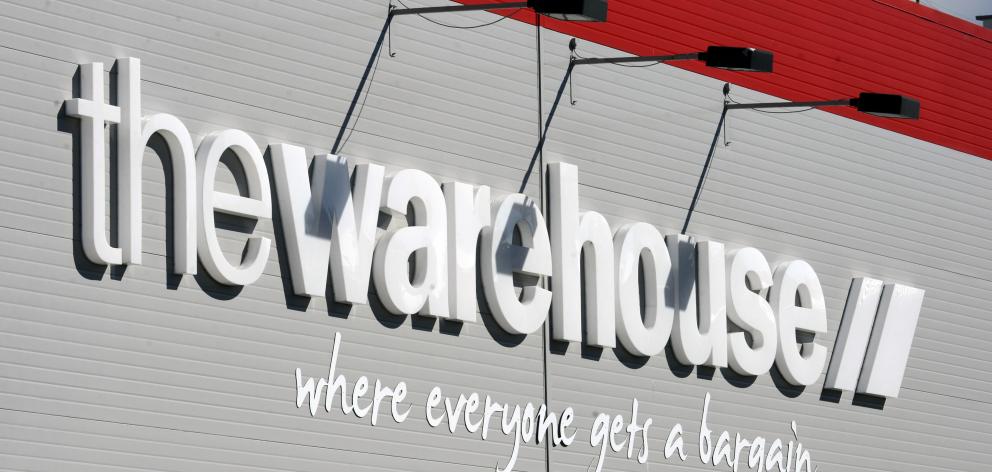
Those centres will share in the loss of hundreds of jobs when stores under The Warehouse, Warehouse Stationery and Noel Leeming brands close from next month. Redeployment and re-skilling may yet be on the cards for a lucky few, but there is still plenty of "consultation" to be done on how the restructure affects individual staff.
The Dunedin Central store’s future was in doubt since June when, as the country prepared for the new abnormal and the fight for economic recovery, the company announced the need for changes that will outlast the predicted bump in — then possibly inevitable slump in — post-Covid-19 lockdown spend.
The Dunedin store was slated for all-out closure. Yesterday, it was spared the axe insofar as the company said it would be closed to the public and converted into an "online fulfilment centre". Just how many of the more than 40 people who worked there would stay in work would be much clearer after consultation.
But as the dust settled last night it was clear The Warehouse Group had not decided to repurpose its city store, and close the others, because of the risk to all retail posed by the uncertainty of impact the global pandemic will have on consumer spending and on import prices.
Chief executive Nick Grayston last month said the changes would have happened regardless of Covid-19. The company needed to get "fit and healthy" in a "rapidly changing world". A good retailer considers the appropriateness of store network, he said, if it wants to "make sure the business carries forward".
A clue as to what The Warehouse found when it considered its operating environment is found in the now-confirmed conversion of the Dunedin Central store into an online fulfilment centre. Displacing a bricks and mortar store with an online experience clearly illustrates the enduring and growing impact of internet shopping.
These "dark stores" are becoming common. Australian-owned supermarket Countdown recently opened its first dedicated online store in Auckland in response to rapid growth in online sales. There, personal shoppers fill online orders for delivery from the chain’s busiest retail stores.
No business could have foreseen the lockdown, but plenty can imagine what the new environment will be like now that even once reluctant consumers have become used to shopping from home. Even incremental change will force significant change for some retailers.
Retail analysts say the lockdown further encouraged the growth of online sales, further eroding in-person sales. Businesses such as The Warehouse Group had the chance to drive and grow online sales, and prepare themselves and their customers to shift from costly buildings.
Many southern boutique and speciality retailers continue to fashion their own niche as real virtual shopping experiences but The Warehouse Group’s move perhaps also highlights the looming treat to many posed by offshore retailers.
On the face of it, The Warehouse may be among the first of the big players to ready itself as a stronger online competitor to Amazon, the American web sales giant — behemoth — that has "fulfilment" warehouses in Victoria, New South Wales and Queensland.
Amazon has "disrupted" retail and e-commerce in the United States and Europe, and there remains plenty of talk of the company expanding in a more meaningful way to New Zealand. If it does, then traditional and e-commerce sales are in for a shakeup.
The Warehouse Group cited changing shopping behaviour as it moved to prepare itself for the future. Sadly, it seems inevitable that jobs, too, will have to change.
Comments
Can the money back guarantee be fulfilled online?
Why would it work any differently than any other online retailer? Even the most inteleculy challenged consumer can figure out how to return an item by post for a refund? It's like watching a government worker trying to reinvent the wheel? The process is already in place, has been since the Advent of internet sales, stop asking stupid questions! Um...will they accept credit cards? How do I collect my goods? What about warranty claims? Geez...get a clue mate!
Inteluculy, these are reasonable consumer questions, mite. You either want custom, or you don't.












